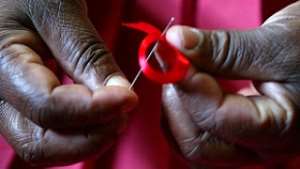
Viruses of human beings, which can only exist together with their carrier, can only live and reproduce if the carrier does likewise. The quicker a virus produces in a human, the more it leads to illness, the more virulent it is and the faster it destroys its own foundation.
Therefore, those viruses have healing properties are those viruses with the greatest chances of survival. If as a result of virus mutations, new viruses are produced, then only those changes which prove beneficial towards survival, also for human beings will spread.
Viruses are highly varied and functional forms of life. Changes can only occur step by step. It is conceivable that as a result of mutation, the respective capabilities of the viruses to become:
- to become attached to specific cells
- or to penetrate these,
- or to block the defence mechanisms of the organism infected,
- or to motivate the affected cells to create copies of the viruses,
- or to elude the defence mechanism in the blood,
that these respective capabilities can in themselves undergo a decisive change.
However, it is quite inconceivable that a virus could result by mutation, which by itself overcomes all the processes of defence in human, for example, leukocytes, lymphocytes, macrophages, killer cells, complementary system, interferon, and antibodies.
Neither by natural changes nor by gene technological manipulations can a stable virus evolve, either now or in the foreseeable future, which alone kills off with certainty the majority of infected persons.
A natural spread of such a virus is likewise impossible.




 Minority will expose the beneficial owners of SML, recover funds paid to company...
Minority will expose the beneficial owners of SML, recover funds paid to company...
 Prof. Opoku-Agyemang has ‘decapitated’ the NPP’s strategies; don’t take them ser...
Prof. Opoku-Agyemang has ‘decapitated’ the NPP’s strategies; don’t take them ser...
 Abubakar Tahiru: Ghanaian environmental activist sets world record by hugging 1,...
Abubakar Tahiru: Ghanaian environmental activist sets world record by hugging 1,...
 Prof. Naana Opoku-Agyemang will serve you with dignity, courage, and integrity a...
Prof. Naana Opoku-Agyemang will serve you with dignity, courage, and integrity a...
 Rectify salary anomalies to reduce tension and possible strike action in public ...
Rectify salary anomalies to reduce tension and possible strike action in public ...
 Stop all projects and fix ‘dumsor’ — Professor Charles Marfo to Akufo-Addo
Stop all projects and fix ‘dumsor’ — Professor Charles Marfo to Akufo-Addo
 Blue and white painted schools will attract dirt shortly – Kofi Asare
Blue and white painted schools will attract dirt shortly – Kofi Asare
 I endorse cost-sharing for free SHS, we should prioritise to know who can pay - ...
I endorse cost-sharing for free SHS, we should prioritise to know who can pay - ...
 See the four arsonists who petrol-bombed Labone-based CMG
See the four arsonists who petrol-bombed Labone-based CMG
 Mahama coming back because Akufo-Addo has failed, he hasn't performed more than ...
Mahama coming back because Akufo-Addo has failed, he hasn't performed more than ...
